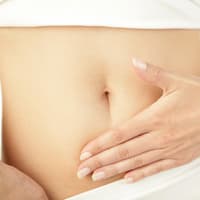
Intimate hygiene: caring for a sensitive area
As children grow into adults, more intimate topics come up during puberty at the latest, as the body develops rapidly at this time. The individual figure begins to take on a gender-specific shape and pubic hair also appears. However, it is not only the visual appearance that changes, but also body odor in general and intimate odor in particular.
Intimate hygiene becomes more and more important, especially when young people feel that they smell unpleasant or think that intimate hygiene needs to be particularly intensive and involve special cleaning products. Good tips are essential here, because good intimate hygiene is important, but in this case less is often more. In fact, pure water is usually sufficient to clean the sensitive area.i
i "Intimate hygiene and personal hygiene". Dak.de, accessed March 15, 2024
Basic tips for sensible intimate hygiene
With a pH value between 3.8 and 4.4, the environment of the female vagina is clearly in the acidic range and thus represents an important protective barrier against harmful germs.i Most fungi and bacteria that cause unpleasant infections in the intimate area only multiply at a pH value above 4.5.2It is therefore important not to disturb the sensitive flora with excessive intimate hygiene in order to keep the pH value in the acidic range.
For sensible intimate hygiene, it is therefore perfectly sufficient to wash the sensitive area of the body once a day from the outside with lukewarm water. Soaps, perfumed shower gels and other cleansers destroy the acidic environment in the long term and therefore the natural protective mechanism. They are therefore unsuitable for use as part of intimate hygiene.
If women do not feel sufficiently clean with "just water", the market offers special intimate hygiene products that are tailored to the sensitive pH value. Some of them contain additional ingredients such as lavender, camomile, sage or other plant extracts that have skin-caring properties without disrupting the intimate acid mantle.
Intimate hygiene is more than just warm water
Although warm , clean water is one of the most important tips for good intimate hygiene, seemingly everyday things also have a significant impact on preventing infections with fungi, bacteria or other pathogenic germs. The figures show that intimate hygiene should definitely break out of the taboo zone, as around 75 out of 100 women suffer from a vaginal fungal infection at least once in their lives.ii
Here are some more tips on intimate hygiene that go beyond direct cleaning of the area:
- Avoid using washcloths, as these are veritable breeding grounds for germs.
- Only perform intimate hygiene from the outside and do not clean the inside of the vagina.
- Deodorants, intimate sprays, perfumed wipes and similar products are unsuitable for intimate hygiene.
- Wear breathable briefs and panty liners, as synthetic materials promote heat build-up and therefore the growth of unwanted germs.
- Change intimate hygiene products such as tampons or pads regularly.
It is also important to question your toilet habits. For example, the use of soft toilet paper prevents micro-injuries. In addition, women in particular should always wipe themselves from front to back to prevent the transfer of germs from the intestinal area to the vaginal flora.
Final tips on intimate hygiene
However, sensible intimate hygiene goes even further, as it is not only a taboo subject, but there are also myths circulating, some of which are harmful. If the intimate area is already burning or itching, the gynecologist will determine the type of infection and various creams or suppositories will alleviate the symptoms.
Tampons with oil or yoghurt are not suitable for intimate hygiene, which is why you should avoid such tips, as they damage rather than support the sensitive vaginal flora.iii Women who are prone to infections should also refrain from visiting the hot tub and wearing thongs. In addition, using your own towel to dry off, but also as a seat pad in the swimming pool, is one of the most important tips when it comes to extended intimate hygiene.
Tips for intimate hygiene therefore include far more information than just the often-established cleaning routines in the bathroom. Anyone who is prone to infections or discomfort in this sensitive area of the body is well advised to review their own habits and change them if necessary.
i Avoxa - Mediengruppe Deutscher Apotheker GmbH, "Less is more". PTA-Forum online, accessed March 15, 2024
ii "Fungal infection of the vagina (vaginal fungus)", gesundheitsinformation.de, accessed March 15, 2024
iii "What really helps: Intimate hygiene - myths and facts", PTAheute, October 29, 2021




